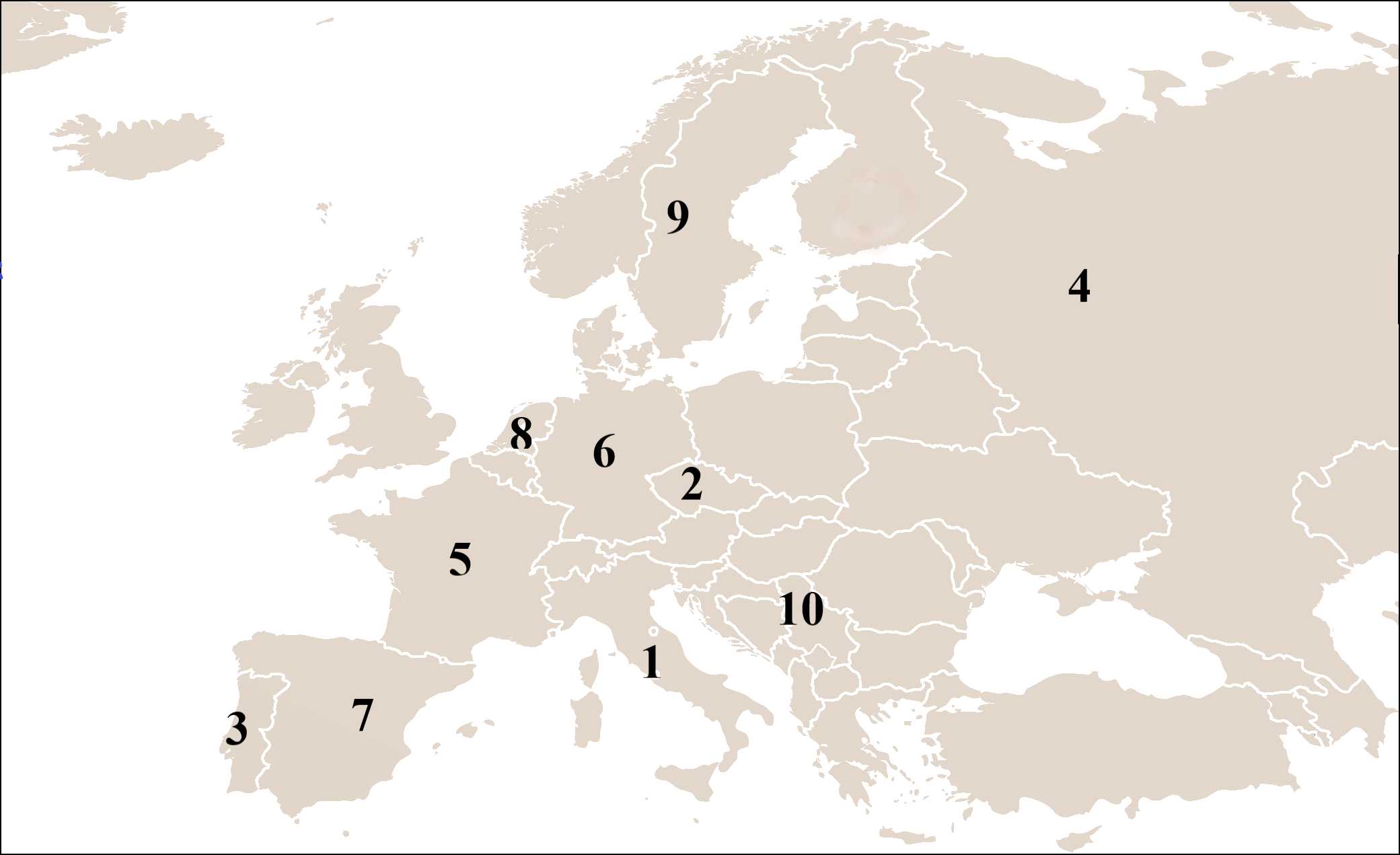
Where Did We Get That Word? Trivia Quiz
Loanwords from European Languages
Although English has borrowed words from a myriad of world languages, a sizable part of these loanwords come from the European continent. Can you find some of these words on the map?
A label quiz
by LadyNym.
Estimated time: 3 mins.
